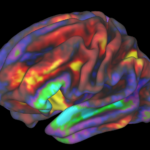Adhering to treatment for post-traumatic stress disorder (PTSD), and experiencing a drastic improvement in symptoms, may be associated with a lower risk of type 2 diabetes, according to researchers from Saint Louis University.
The study, published in JAMA Psychiatry, examined the medical records of 5,916 randomly selected cases from the Veterans Health Affairs. The data, occurring between 2008 to 2015, targetted veterans aged 18 to 70, with a mean age of 42, who received at least two instances of specialty care for PTSD.
“This retrospective cohort study examined Veterans Health Affairs medical record data from 5916 patients who received PTSD specialty care between fiscal years 2008 and 2012 and were followed up through fiscal year 2015,” the study says.
Improvement of PTSD symptoms was linked to a reduction in other health issues such as depression, insomnia, blood pressure, and overall well-being.
As part of their treatment, the participants completed a PTSD Checklist (PCL). The findings indicated that a reduction of 20 points on the checklist score was associated with an improvement of PTSD symptoms. These participants with a lower clinically meaningful PCL score were at a decreased risk of developing type 2 diabetes.
“In patients with only PTSD, clinically meaningful PCL decrease is associated with lower risk for diabetes and in patients with PTSD and depression, we found improvement in PTSD was coupled with a decrease in depression,” said Jeffrey Scherrer, a professor at Saint Louis University.
“Thus decreased risk for type 2 diabetes appears to follow large PTSD symptom decrease and in patients with both PTSD and depression, improvement in both conditions may be necessary to reduce risk for type 2 diabetes.”
“The findings suggest that clinically meaningful reductions in PTSD symptoms are associated with a lower risk of T2D. A decrease in PCL score, whether through treatment or spontaneous improvement, may help mitigate the greater risk of T2D in patients with PTSD.”


